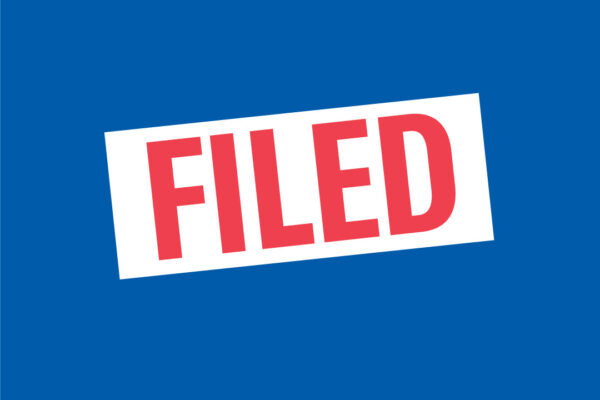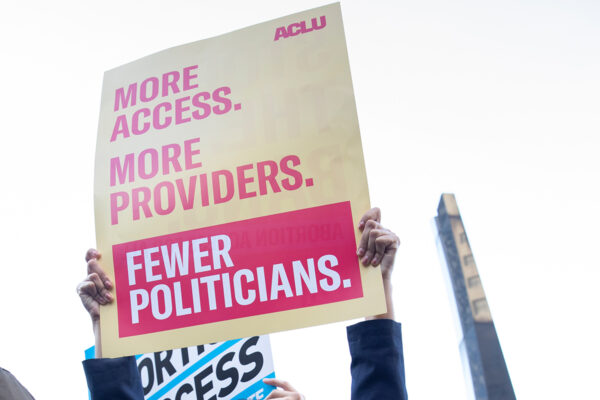All-Options pregnancy resource center joined a coalition of health care providers today challenging several recently enacted abortion restrictions in Indiana, including a measure forcing health care providers to share false and misleading information with their patients about “reversing” a medication abortion, a bogus claim that may lead some patients to end a pregnancy based on the mistaken belief that its effects can later be undone.
There is no scientific evidence that a medication abortion can be halted after a patient has taken the first medication and leading medical organizations oppose these requirements. Forcing providers to give their patients this misinformation is both unethical and unconstitutional; courts in North Dakota, Oklahoma,, and Tennessee have blocked similar restrictions.
"Every day we help Hoosiers overcome barriers to find the abortion care they need,” said Parker Dockray, Executive Director of All-Options. “Indiana needs more access and compassion, not more restrictions. HB 1577 is a step in the wrong direction and we're proud to be challenging it along with our partners."
The lawsuit – All-Options v. Attorney General of Indiana - also challenges a 2021 ban on patients’ ability to obtain medication abortion via telemedicine. A nearly identical ban is already being considered by a federal district court judge in separate litigation – Whole Woman’s Health Alliance v. Rokita - challenging a host of abortion restrictions in Indiana.
“These new regulations imposed by Indiana lawmakers are layered on top of an already burdensome regulatory scheme, making it difficult for people to access safe abortions, and more and more difficult for us to provide this essential medical care,” said Amy Hagstrom-Miller, President & CEO of Whole Woman’s Health Alliance. “Medication abortion is safer than many over-the-counter medications, and can be safely administered via telehealth. Claims of so-called ‘abortion reversal’ are not supported by science and can give patients dangerous, misleading information. All people, including folks in Indiana, deserve access to evidence-based abortion care and the agency to build their own lives and future.”
These are not the only legal challenges to the myriad obstacles and indignities Hoosiers face when they need an abortion.
- Patients and health care providers are challenging Indiana’s restriction forcing health care providers to dispose of embryonic and fetal tissue from miscarriage and abortion patients like they would a deceased person -- either through interment or cremation.
- All-Options, Whole Woman’s Health Alliance, and other health care providers are challenging a host of abortion restrictions, including (1) Targeted Regulation of Abortion Provider (TRAP) laws; (2) laws that deny abortion patients the benefits of scientific progress; (3) biased counseling and waiting-period laws; and (4) laws that criminalize abortion care. Trial was held in that challenge in March 2021.
- An individual health care provider is challenging a law that would have banned the standard method for abortion care starting in the earliest weeks of the second trimester. A federal district court blocked that ban in 2019.
- Planned Parenthood Great Northwest, Hawai‘i, Alaska, Indiana, Kentucky (PPGNHAIK) is challenging a law providing that even if a court exempts a minor from Indiana’s parental consent requirement because it determines the minor is mature, a parent must still be notified of the minor’s abortion - thus allowing a practical veto of the minor’ decision. A federal district court blocked that requirement in 2017. The Seventh Circuit Court of Appeals has twice affirmed the injunction, and the State has twice petitioned the Supreme Court to review the case. An injunction blocking the law remains in effect.
- PPGNHAIK is also challenging invasive reporting requirements that single out abortion providers, a restriction which has been blocked.
“Anti-abortion politicians in Indiana have doubled down on depriving pregnant people of medical care,” said Sneha Shah, Litigation Counsel at the Lawyering Project. “We are proud to stand with our partners and clients in challenging these unscientific, bogus restrictions that deprive pregnant people of the dignity they deserve.”
“Despite our constant efforts to warn Indiana legislators and Governor Holcomb that this law is unconstitutional and would inevitably be challenged in the courts, elected officials yet again put politics ahead of women’s health,” said Ken Falk, legal director at the ACLU of Indiana. “These restrictions would put Hoosiers at risk while ignoring science and the rights of medical providers.”
“The reckless bills passed in the Indiana General Assembly this session demonstrate exactly why legislators need to leave the practice of medicine to medical professionals,” said Chris Charbonneau, CEO of Planned Parenthood Great Northwest, Hawai‘i, Alaska, Indiana, Kentucky. “In Indiana and across the country, people deserve the freedom and privacy to make personal medical decisions that are best for themselves and their families. This new law will hurt the people of Indiana who already face myriad restrictions when accessing reproductive health care. People deserve the right to trusted medical information that is scientific and evidence based. Anything else is dangerous and unethical. Given the Supreme Court’s decision this week to consider a case that directly challenges Roe v. Wade, it is critical that we do everything in our power to protect and strengthen access to medically-sound, fact-based reproductive care. We expect our elected leaders to stop playing doctor and instead work to improve the lives of the people they serve.”
The plaintiffs in today’s challenge include All-Options, Whole Woman’s Health Alliance, Planned Parenthood Great Northwest, Hawai‘i, Alaska, Indiana, Kentucky, Women’s Med Group Professional Corporation and individual physicians. They are represented by the Lawyering Project, Planned Parenthood Federation of America, ACLU of Indiana, and Katherine D. Jack of the Jack Law Office LLC.
Stay Informed
Sign up to be the first to hear about how to take action.
By completing this form, I agree to receive occasional emails per the terms of the ACLU’s privacy statement.
By completing this form, I agree to receive occasional emails per the terms of the ACLU’s privacy statement.


